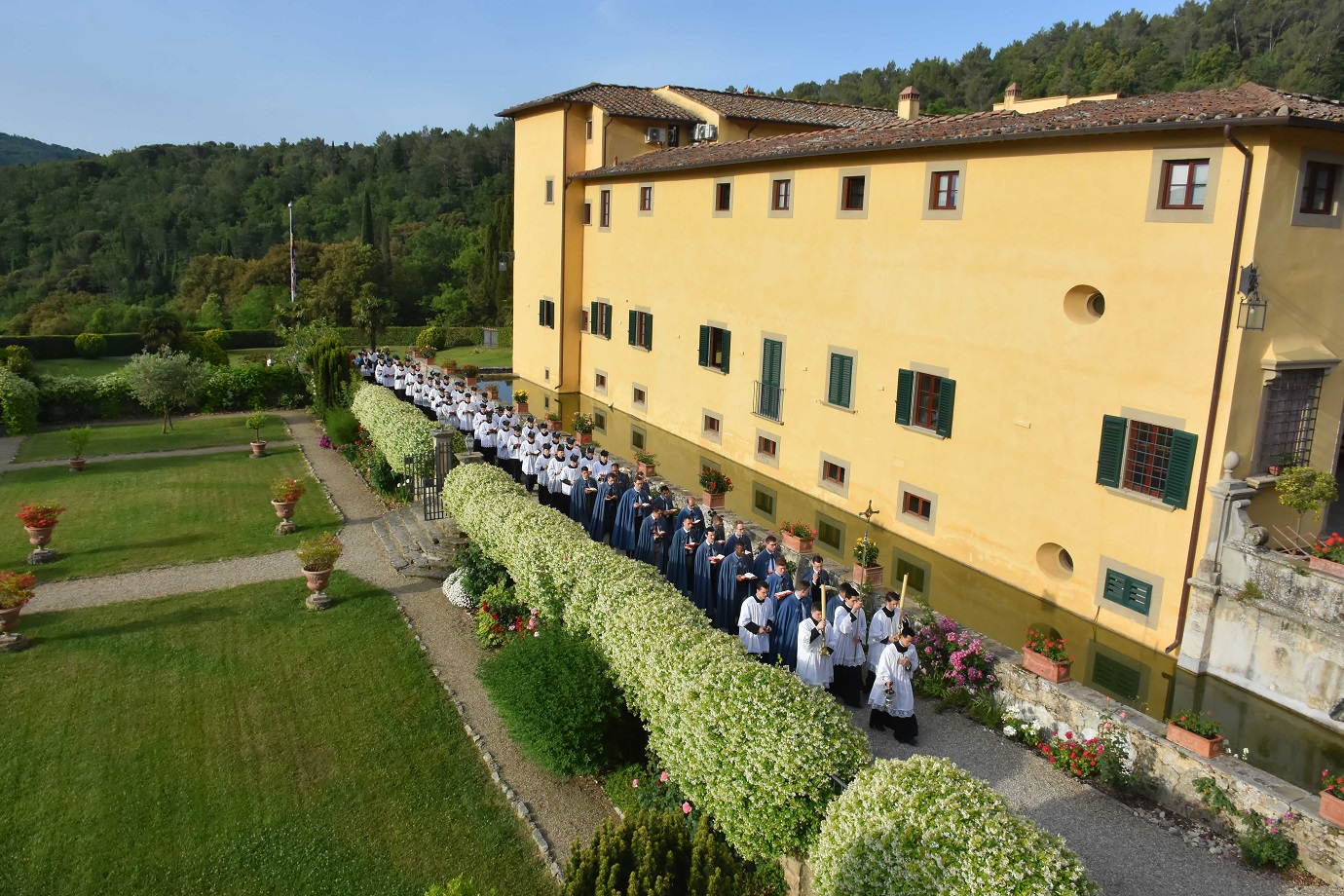Vocations to the Priesthood
Formation
The obligatory formation for all our candidates to the holy priesthood is comprised of a one-year course of Spirituality, a two-year course of Philosophy, and a four-year course of Theology.
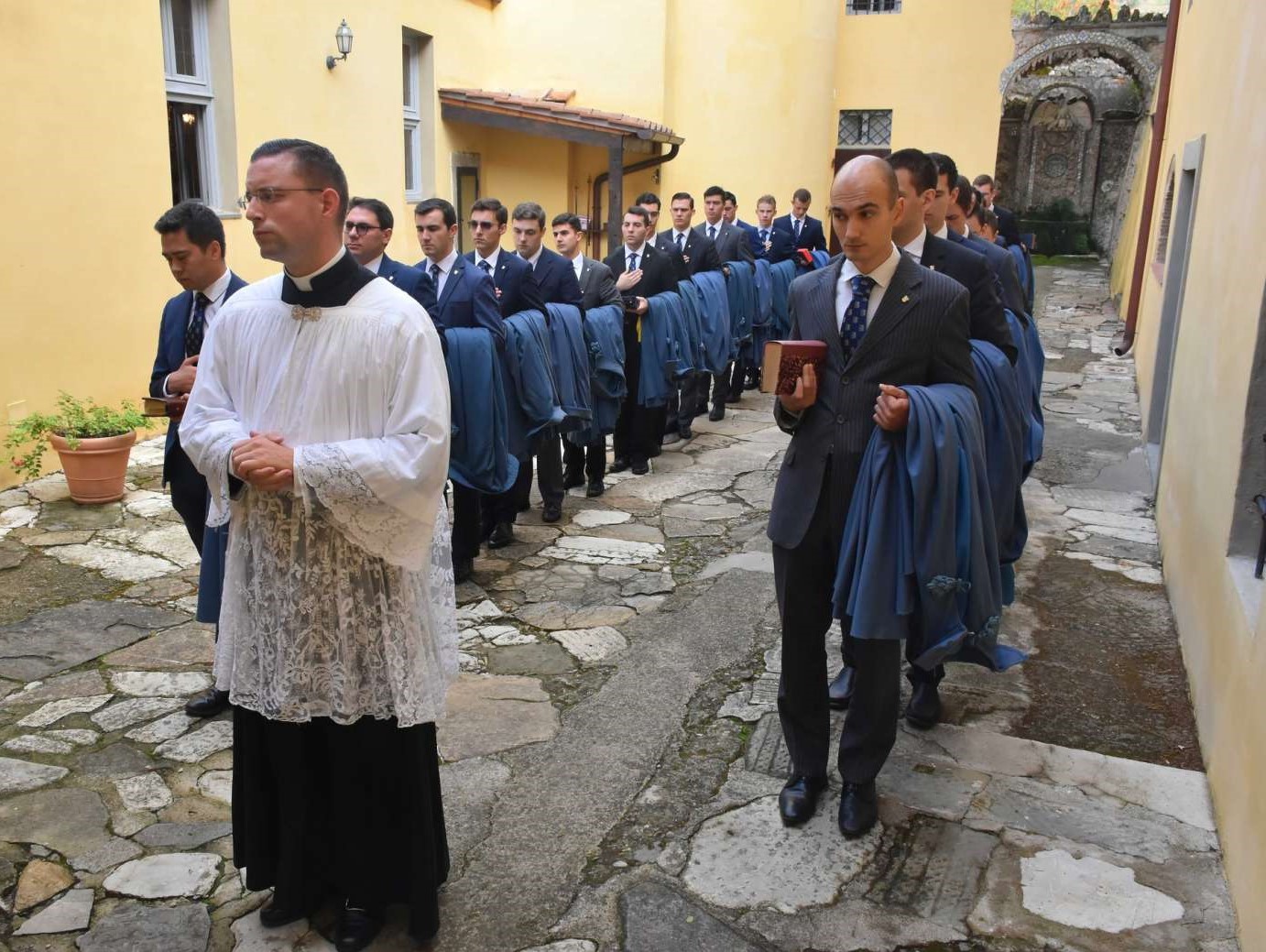
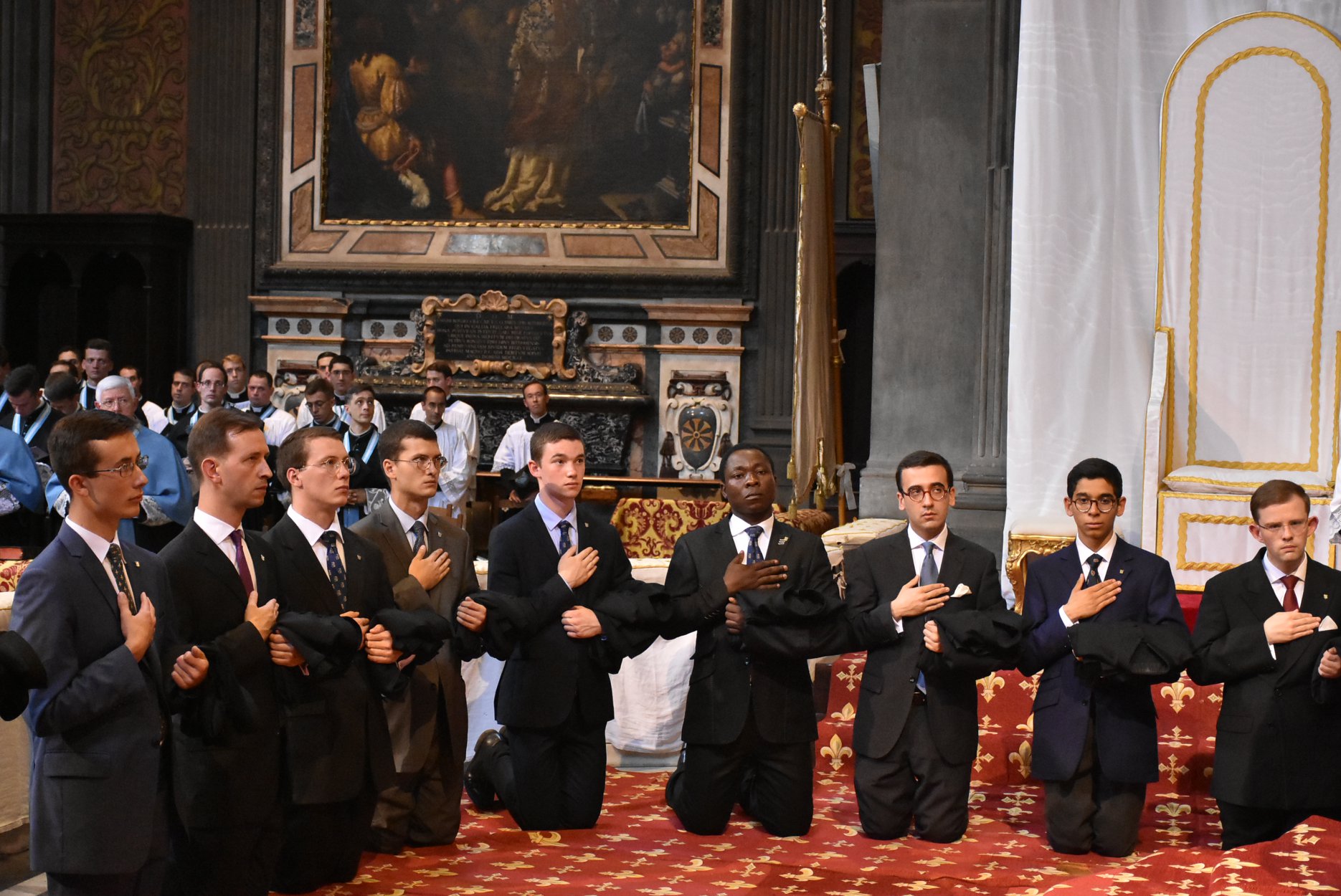
This academic program is taught by professors from Roman Universities, the Sorbonne, the IPC Philosophical Faculty in Paris, and our own priests who have academic degrees. Candidates to the priesthood must also know or learn over the course of his formation at least two languages other than his own. For those who speak English, these include French and, of course, Latin.
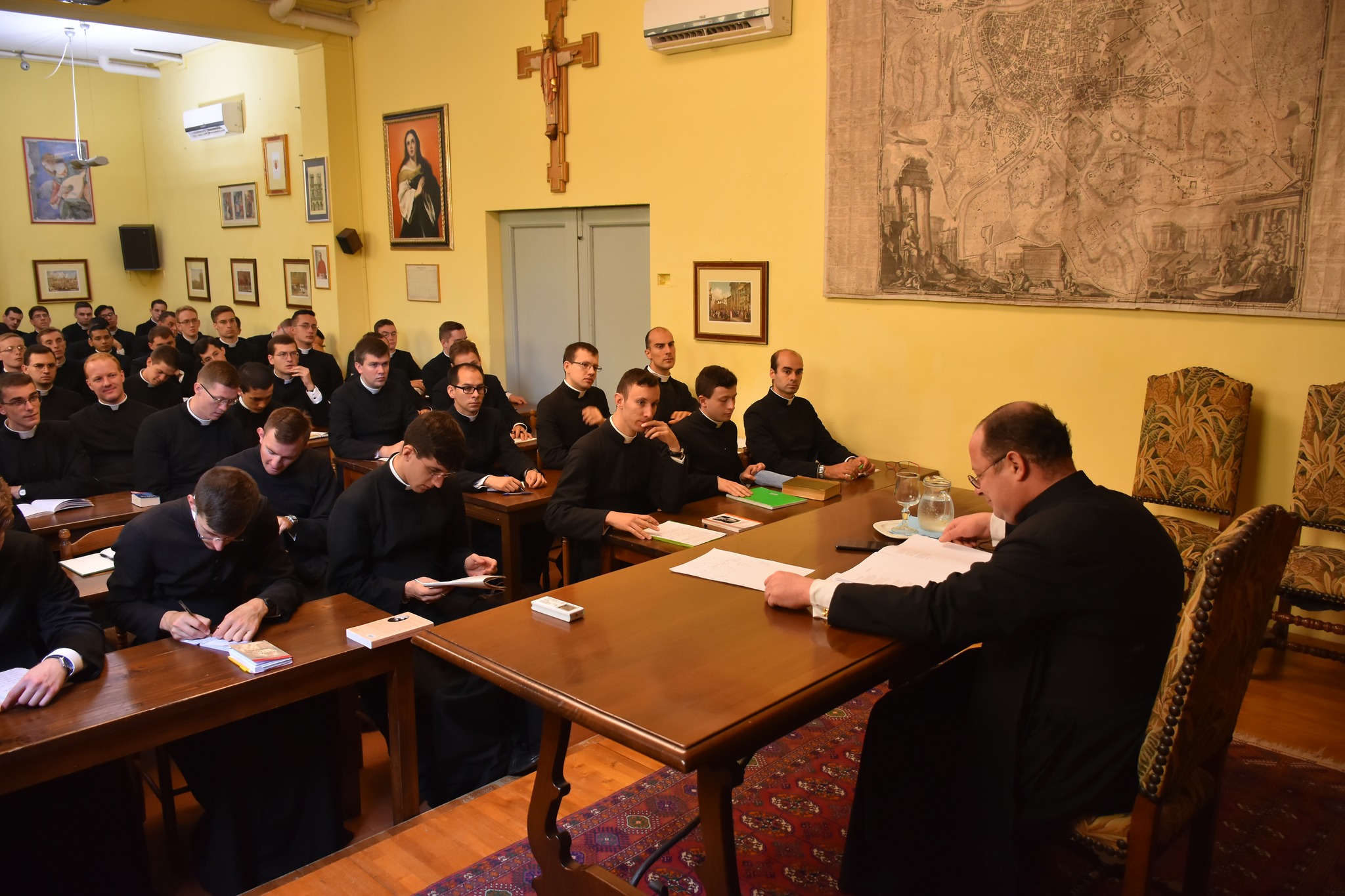
The intellectual formation of our seminarians is accompanied by a thoroughly human formation, which includes general culture, priestly manners, and an extensive amount of daily practical work in the house and around the outside grounds.
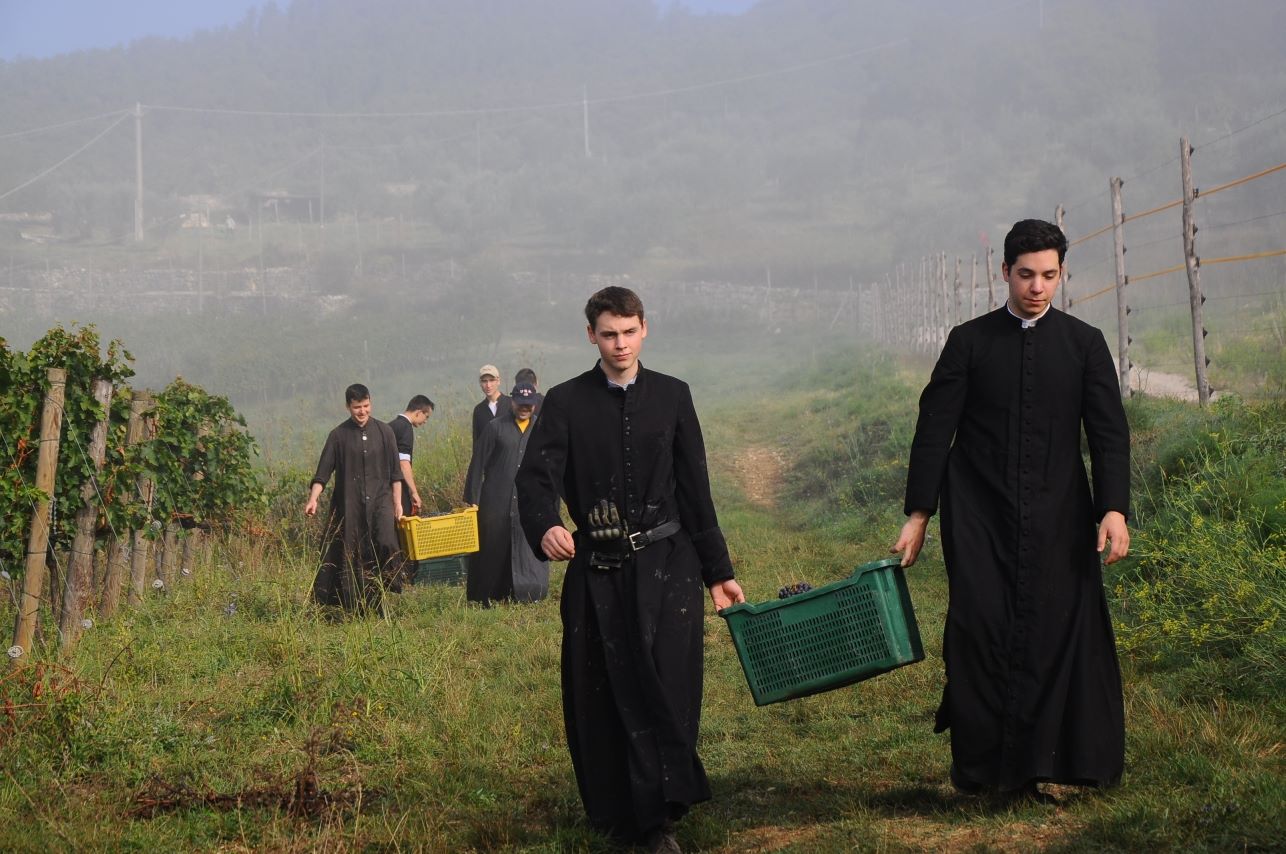
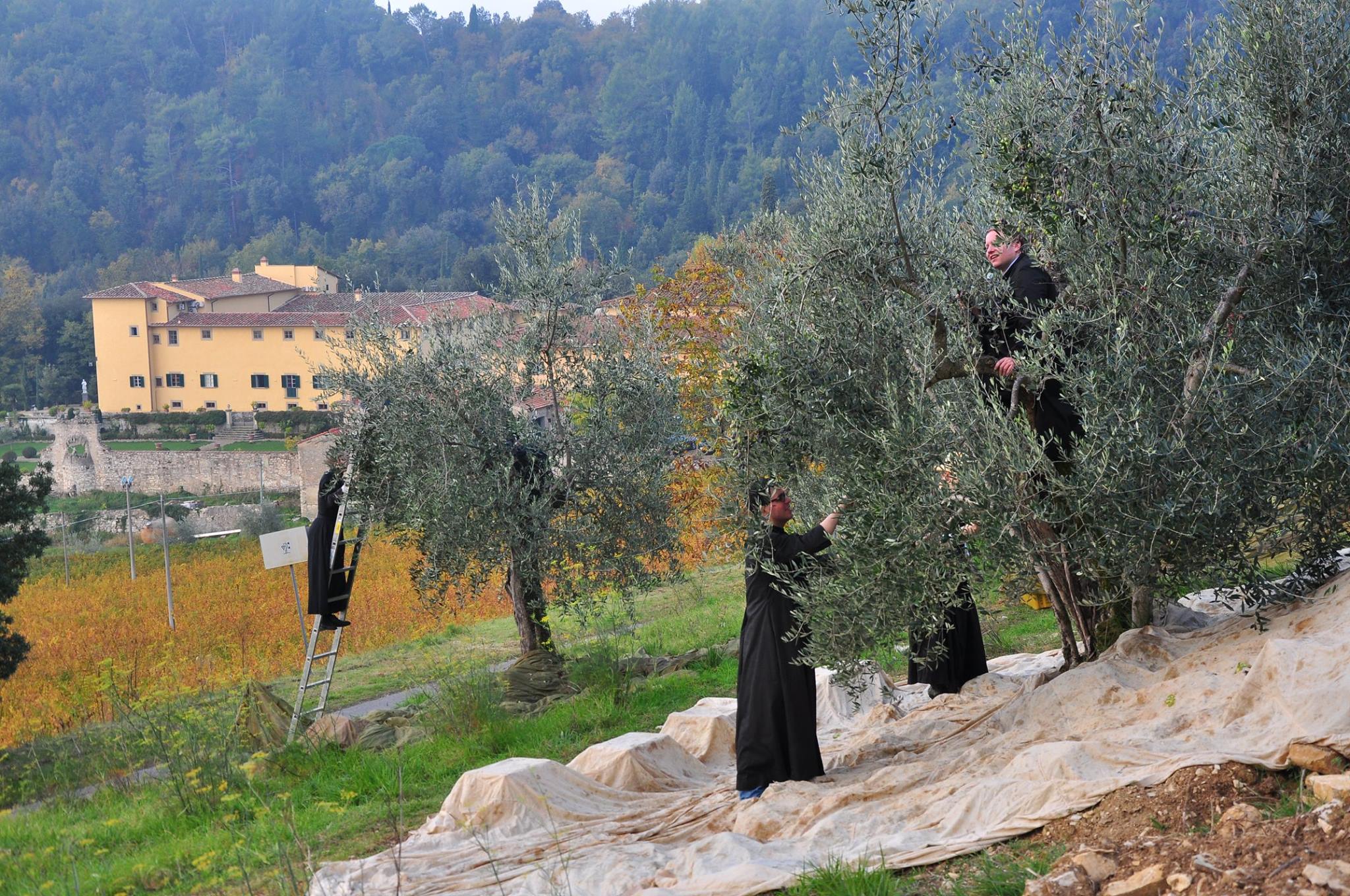
This combination is very efficient for the complete education of mind and body which we want to give our seminarians. A purely intellectual formation is never sufficient for a priest.
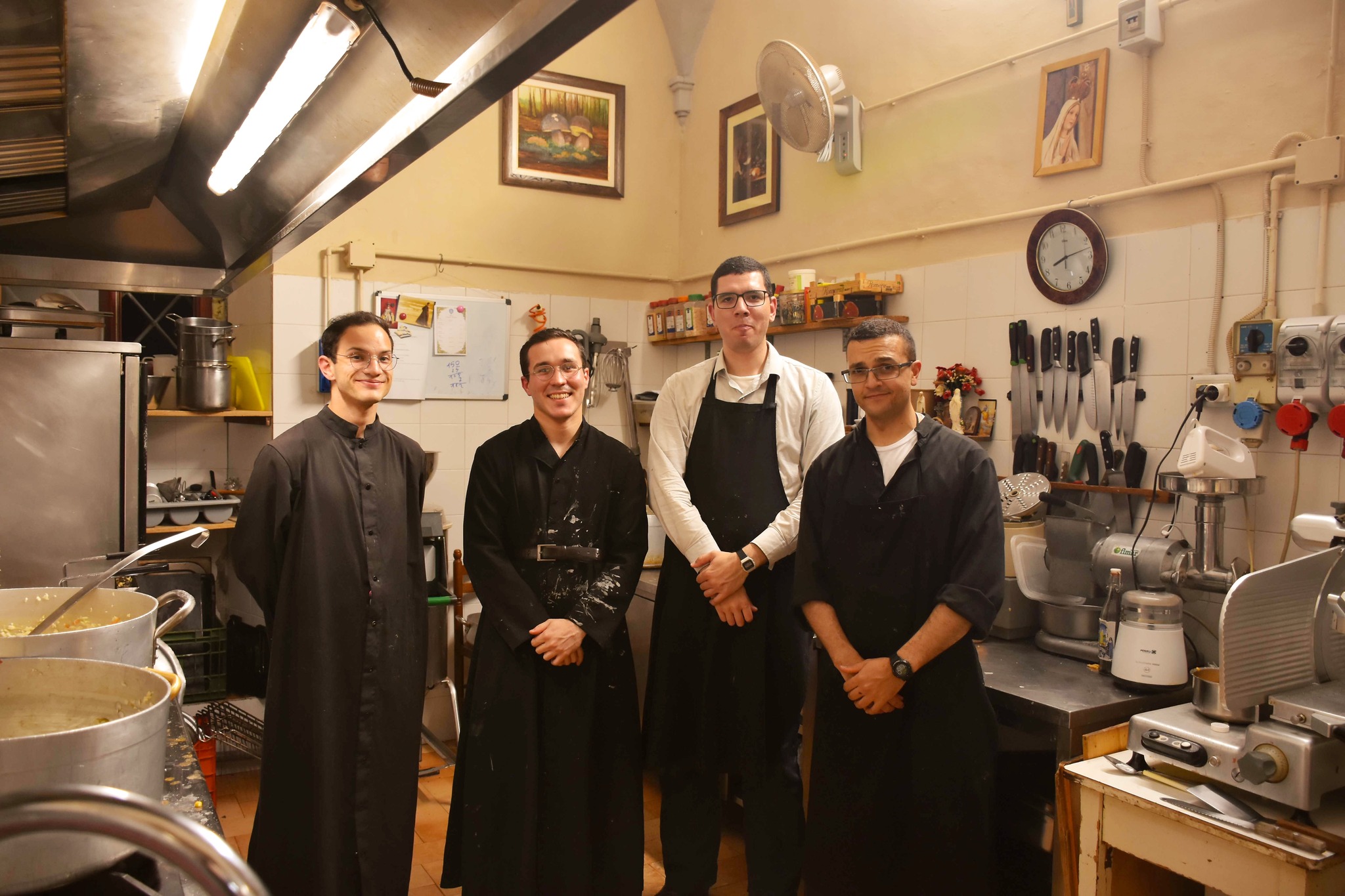
His personality would certainly remain insufficiently formed if it did not include a profound prayer life and the humility to accept practical duties and fulfill them well.
A Community Lifestyle
For young men, it is especially important to learn that everyone who lives in a family, whether it be a small or large community, has to take on responsibilities for others.
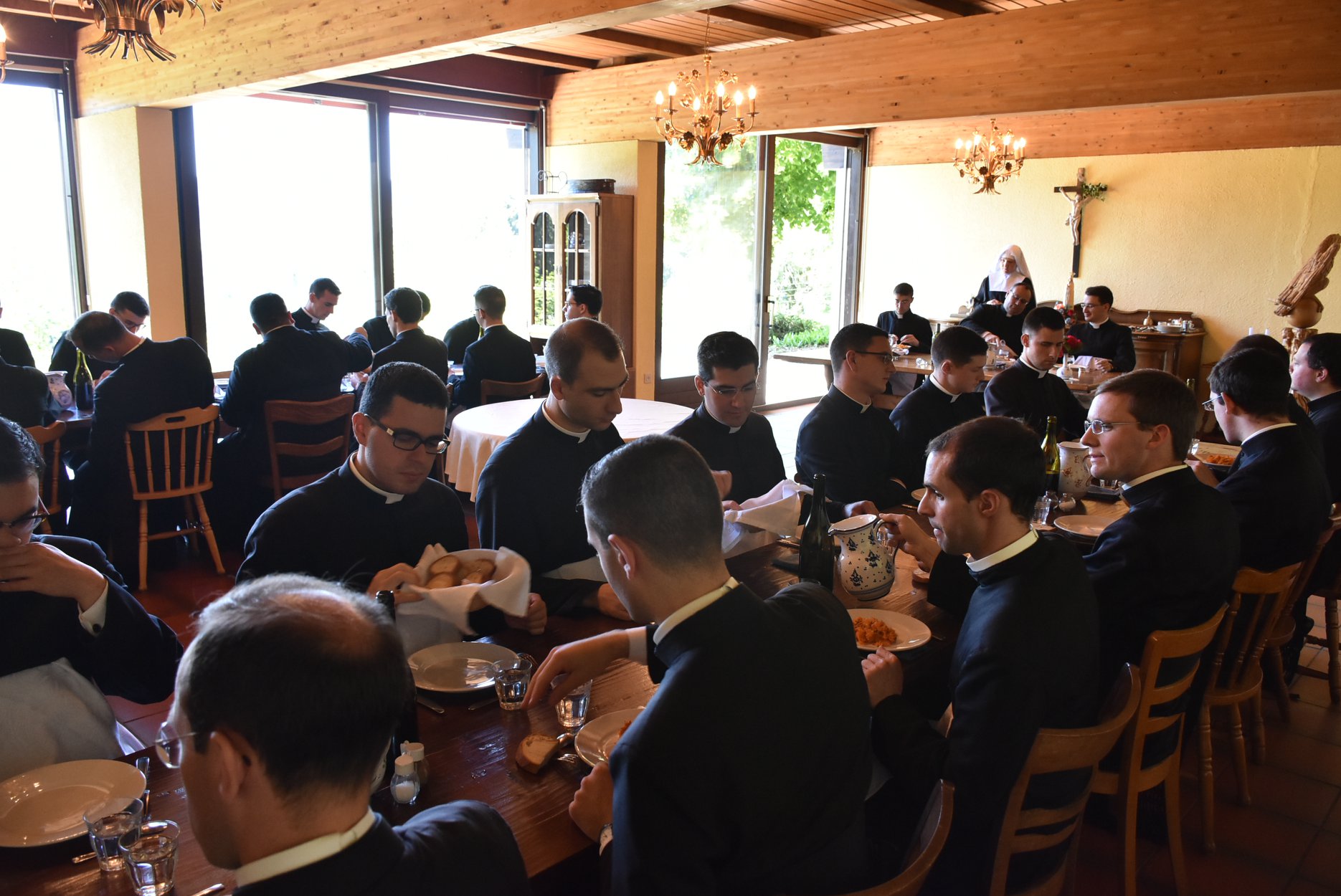
At the same time, he also must learn to integrate his life into the discipline which serves as the foundation of true charity toward others.
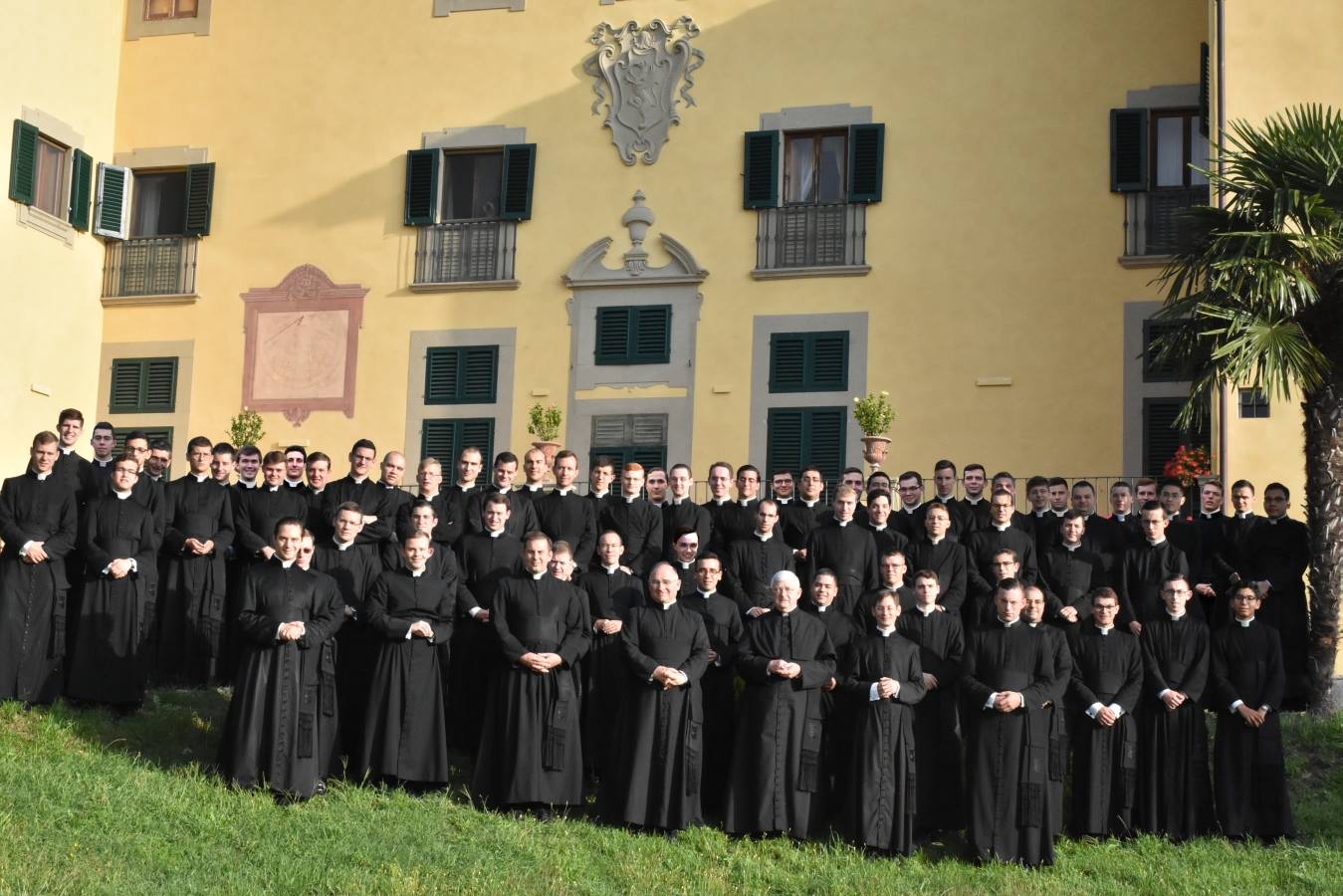
It is not always easy, and it requires sacrifice and mortification of the will. However, in the end, through free obedience and hard work, this discipline gives joy and satisfaction.
Prayer Life
Without any doubt, the most important element in seminary life is daily contact with Our Lord through Holy Mass, the Divine Office, the Rosary, and personal meditation.
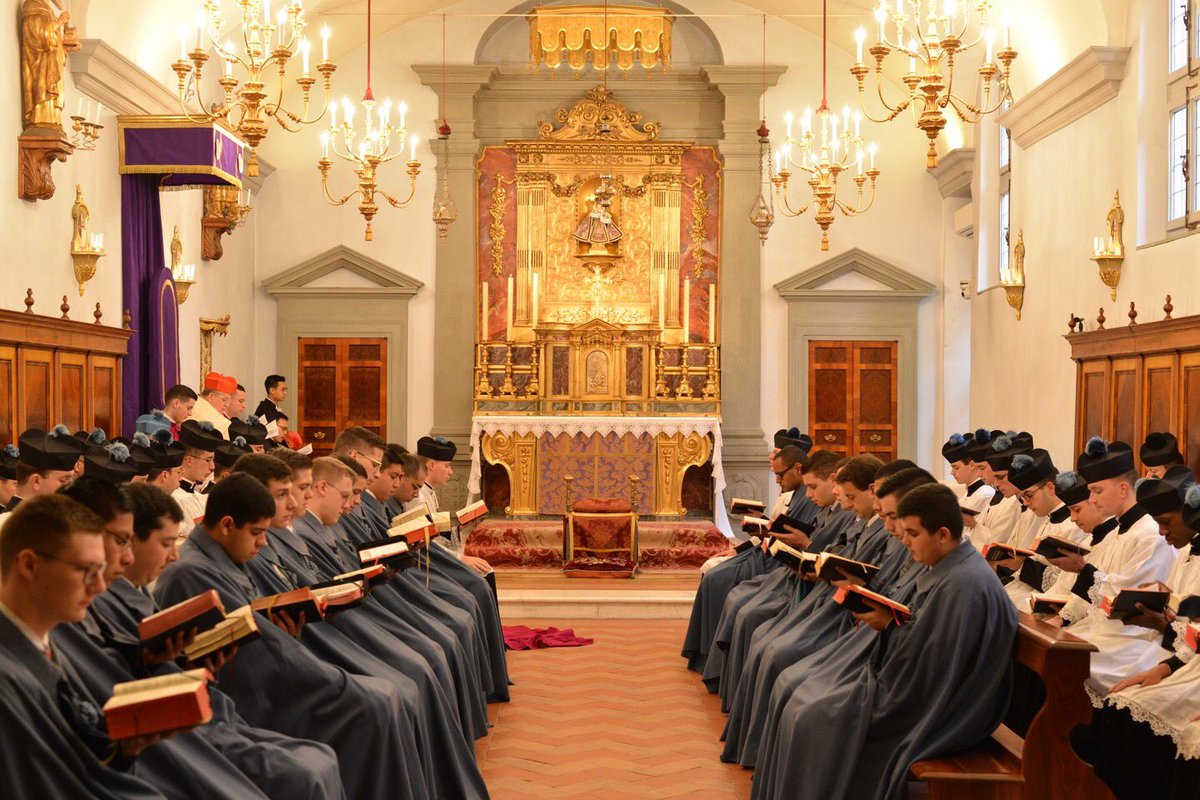
The seminarians come to know not only the history and the rubrics of the Sacred Liturgy, but also its inner meaning and great power for their spiritual lives. Every single gesture of the Classical Liturgy has a profound signification. Every detail matters when it comes to our relationship with the Lord.
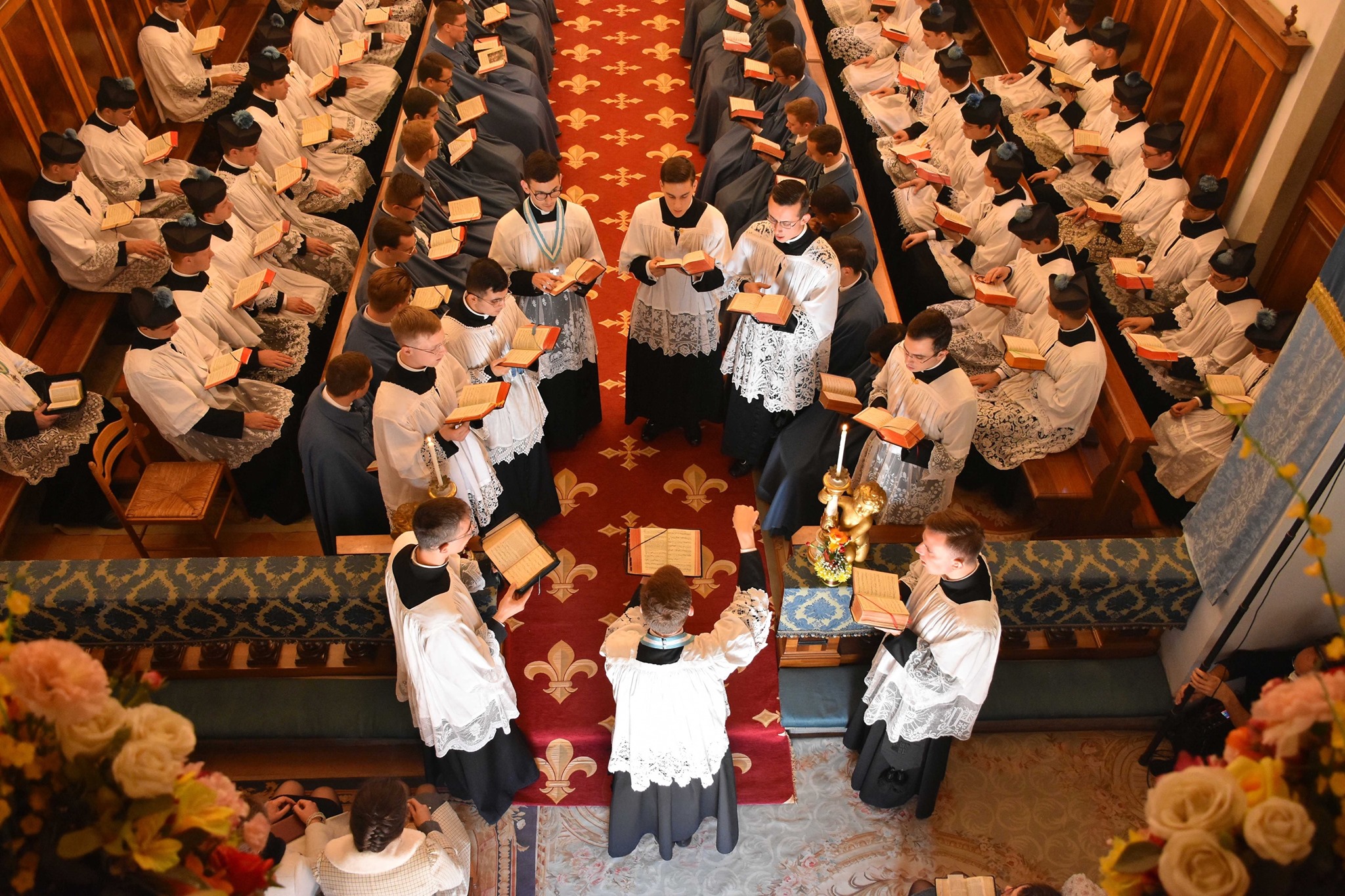
The personal faith of our seminarians has to be measured by the objective holiness of the liturgical mysteries and by the unchangeable truth of the Catholic Faith. Subjective piety and objective grace have to form a unity linked by the celebration of the Traditional Latin Liturgy.
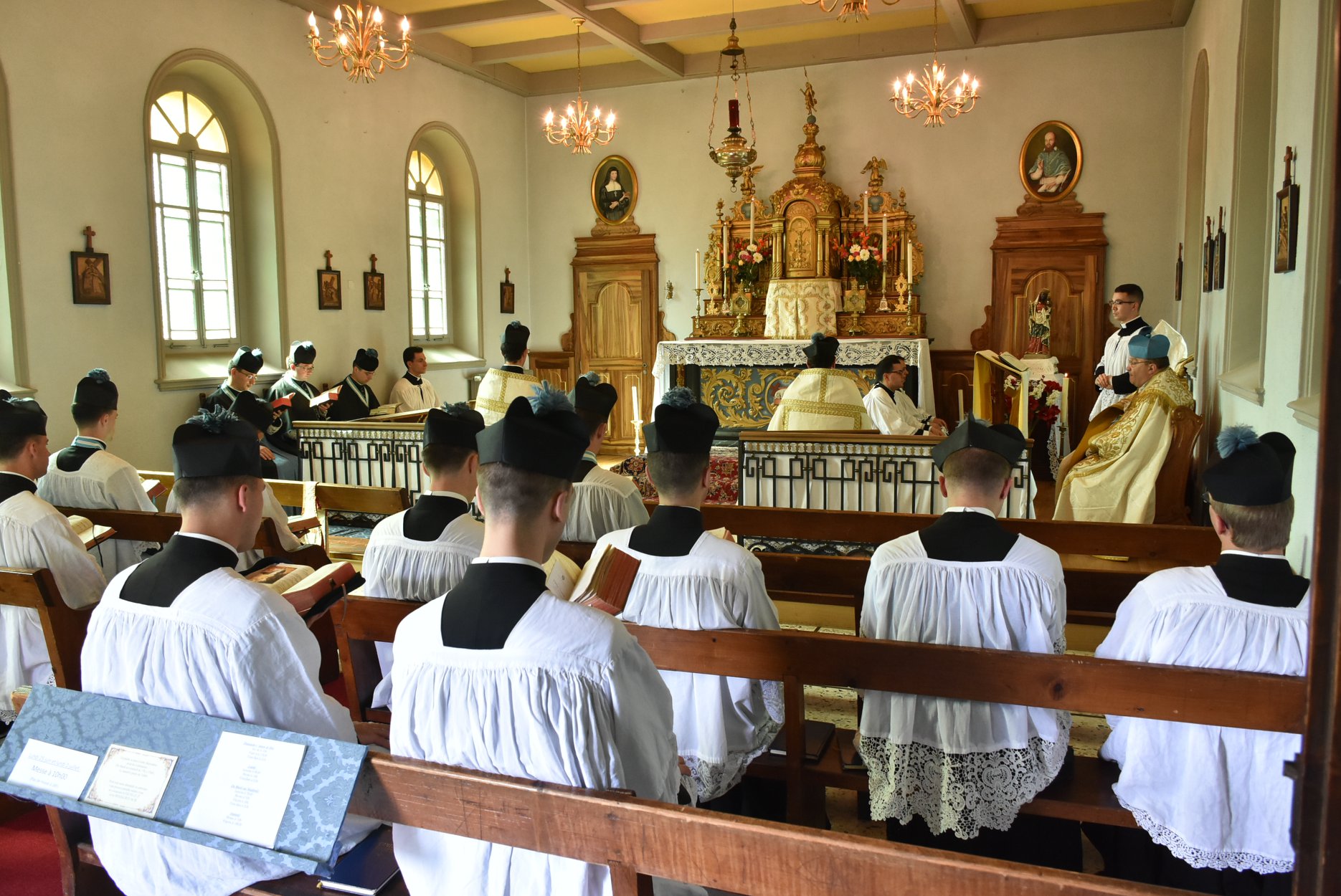
Neither exterior formalism nor pietism can survive when a seminarian, under the guidance of the authority of the Church which is represented by his superiors, strives in his liturgical participation and his interior life to "do what the Church does." This authentic Roman Catholic harmony between the subjective and the objective, between nature and grace, between the human and the Divine is a fruit of obedience towards the tradition that the Lord Himself has given and guarantees to Holy Mother Church.
As our founder, Monsignor Gilles Wach, STD, frequently quotes, "We do not save the Church, the Church saves us." She does so because She follows the directions of our Lord Himself who has died for our redemption on the Cross and who has founded the Church as the instrument to prolong His salvation through the centuries. In its seminary, the Institute of Christ the King wishes to form faithful "administrators of the Holy Mysteries" who do nothing else than what Christ wants them to do for souls: bring them to Him through the sacraments of the Church.
Our Seminary
Our seminary building at Gricigliano in Tuscany, Italy includes living quarters for the seminarians, an enormous refectory, large kitchen, classrooms and a conference hall with up-to-date teaching equipment. Learn more about our seminary.
Requirements for Prospective Candidates
To enter the Institute of Christ the King’s formation program to the oblatehood, candidates must:
• Be between the ages of 18 and 40
• Have a high school diploma or equivalent, and/or working experience
• Have a two-page resume, which includes date of birth, main schooling and working experiences, and a photograph
• Have the recommendation of at least two priests
Fulfilling these requirements, prospective candidates may email our U.S. Provincial Headquarters in Chicago to contact the vocations director.
Request a Vocations Packet
If you would like to learn more about vocations in the Institute of Christ the King, please contact our U.S. Provincial Headquarters by email.

